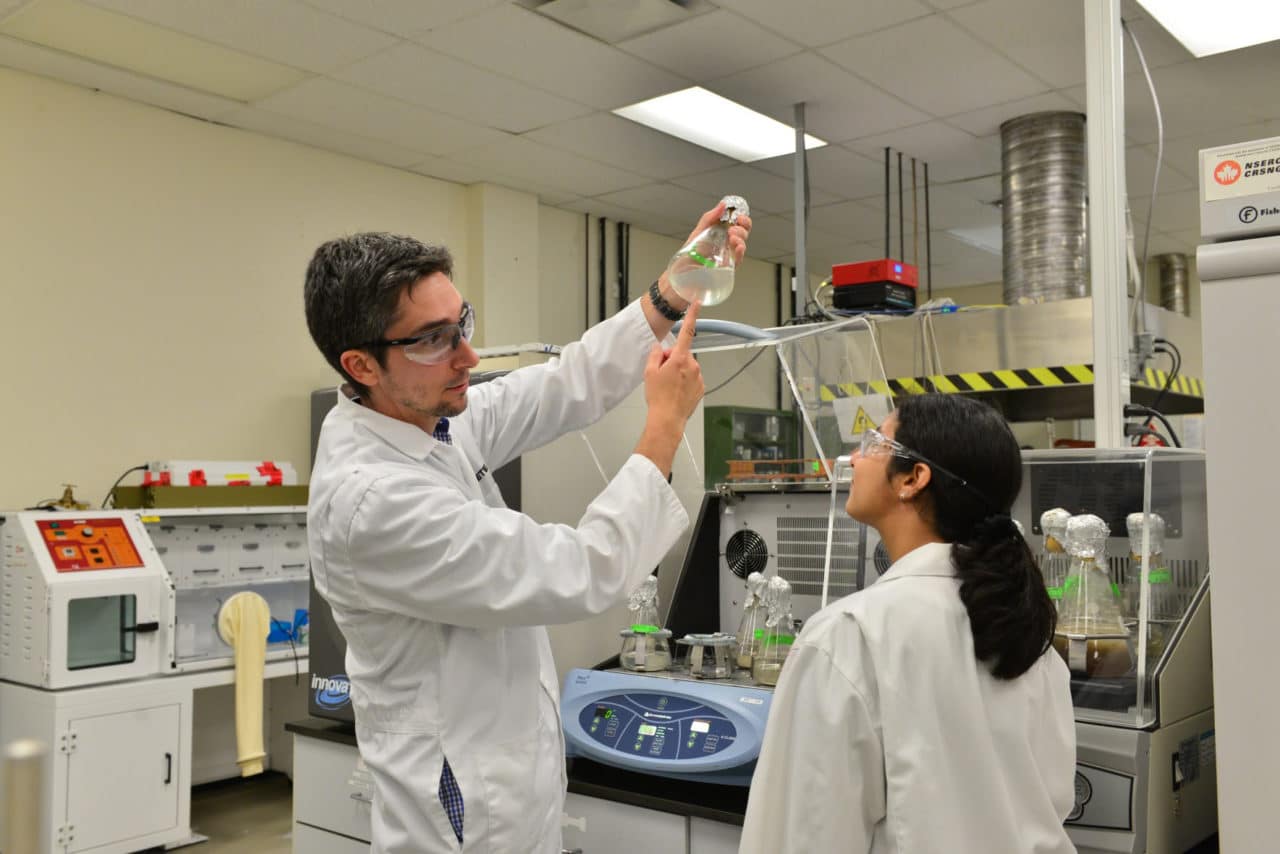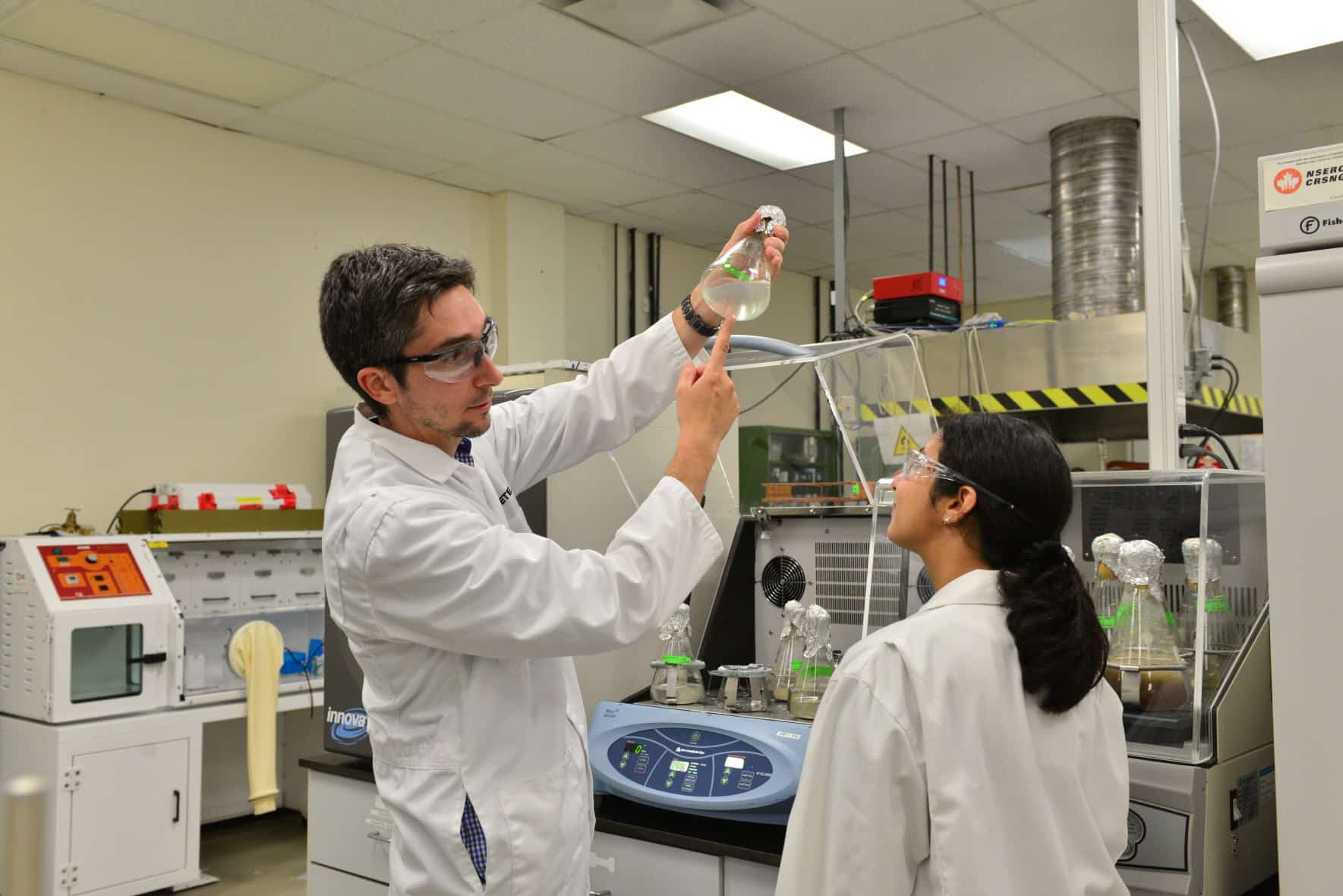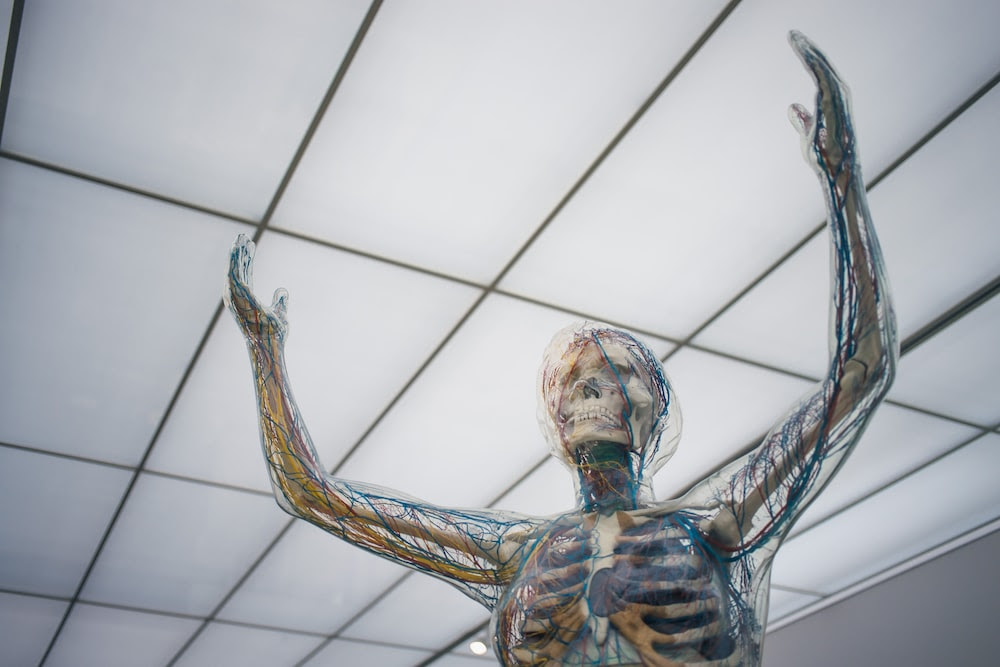
Winner of the Prix Denis-Barbeau from Acfas, biologist Jean-François Lemay produces proteins for university researchers and companies. They have many uses, including detecting whether a person has had COVID-19.
When he was young, Jean-François Lemay often amused himself by mixing vinegar and baking soda to observe the chemical reaction. “I used to waste a lot of it,” laughs this molecular biology researcher at the Centre national d’électrochimie et des technologies de l’environnement (CNETE), affiliated with the Cégep de Shawinigan, who has just been awarded the Prix Acfas Denise-Barbeau 2021 for college research.
Today, biologist Jean-François Lemay has become a respected authority in the scientific world, specializing in the isolation, identification, genetic modification and monitoring of micro-organisms. An expertise he put to good use when COVID-19 took the planet by storm. With his team, he thought of producing proteins that could help combat the SARS-CoV-2 virus. In the end, he focused on the N protein (nucleocapsid). Why is it so important?
A quick explanation: COVID-19 vaccines target the S protein that enables the virus to infect our cells. This means that vaccinated people develop antibodies that block this protein. But the virus contains other proteins, including N. This protein is present in people who have contracted COVID-19 – enabling seroprevalence studies to distinguish them from vaccinated people who have never been infected.
BioprocessWe first isolate a yeast clone (Pichia pastoris) possessing the enzyme gene requested by the partner. Once the micro-organisms have been selected for a bioprocess, it is important to optimize the physico-chemical conditions (e.g. temperature, ph, agitation, aeration, composition of culture media) in order to increase production of the targeted biomolecule. Five two-liter bioreactors are presented here. Several simultaneous fermentation trials enable optimum conditions to be confirmed in a short space of time.
Recreated from scratch in the laboratory by Jean-François Lemay’s team, protein N is now used for a variety of purposes. It is used in a screening test that can determine in a matter of minutes whether or not a person is an antibody carrier; it is used by Héma-Québec’s blood bank to monitor the evolution of Quebecers’ immunity; and it will contribute to the development of new vaccines against COVID-19.
This product, this “100% Québécois” protein, has proven to be more effective than generic proteins. “It’s always preferable for researchers to have their proteins produced here, because it’s less expensive than ordering them from abroad, but also because we can create a DNA sequence according to their specific needs,” explains Jean-François Lemay. This sequence is then inserted into a bacterium or yeast that enables overexpression of the protein of interest, and the researcher then purifies it.
By 2019, biologist Jean-François Lemay was producing proteins for other fields, including food, cosmetics and pharmacology. Despite the crisis, these projects continue.
“For example, I degrade large molecules such as chitosan, found in shrimp shells, into small molecules with greater added value. I’m also producing proteins to counter eye disorders and chronic inflammatory bowel disease, among others.”
With such a vast playground, Jean-François Lemay is sure to have no shortage of ideas for finding solutions to tomorrow’s challenges.




